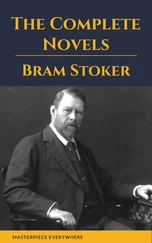I rode to Treverorum, alone but for my escort. I came to Romulus at sundown, just as they were about to close the gates. While the men picketed their horses in the courtyard I sent a message to Flavius. He arrived very late, having come straight from the house of a friend where he had been dining.
He stared at me like a bewildered bear. He was very drunk.
“Sorry, sir. Didn’t expect you—sir.”
“No,” I said. “I can see that. Which church is this man in? What is his name? What is his record? I am going to see him in the morning. I want to know everything about him now.”
He stared at me helplessly, swaying on his feet. “Tired,” he said.
I rose from my stool, picked up a pitcher and flung the water over him. The shock overbalanced him and he sprawled on the floor, dripping, bruised and winded.
“Talk,” I said. “I’m twice your age and I have just ridden seventy miles in two days. You’ve made a mess of things and I’ve got to clear them up. The sooner you start the sooner we shall both get to bed. Wake up.”
I had hoped my arrival at sundown might have kept my coming a secret but when I went into the street the next morning there was already a crowd waiting. I did not ride; I walked.
“There may be trouble,” said Flavius. “Ride on horseback, sir, and with an escort.”
“Then there will be trouble,” I said.
“Your sword, sir. You’ve forgotten to put it on.”
I said, “I never forget my sword. I want you and one man to come with me. Leave your weapons in the armoury. And keep five paces behind me all the way.”
“I—” He broke off and stared in front of him.
“You are a christian, are you not? I thought you people had a passion to martyr yourselves.”
He gulped.
I said unkindly, “I shall be in good company if anything goes wrong. Besides, I don’t know the way.”
We walked. The crowd pressed about us, fell back to make way for us and then followed curiously. Men and women, boys and girls, little children even; all had that look I had seen on the faces of the crowd at a circus on the arena; the pale excitement of those who wish to see blood spilt without hurt to themselves. At first they smiled, then they stared, and then, as we approached the church, an ugly muttering broke out. A woman laughed, and a voice cried contemptuously, “What else do you expect of a man who believes in a cattle-thieving god?” There were jeers and insults. Someone threw a stone. It hit me on the mouth and I could feel the blood trickling down my chin. A second struck me above the right eye and the bleeding nearly blinded me. I felt sick with pain but I took no notice. They were scum, like all crowds in all cities. It was my soldier who mattered to me, not them.
The crowd was thickest by the square, on the north side of which stood the church. On the steps were a number of priests, and in the midst of them, the Bishop. Artorius was there, too, standing in the shadow of a pillar, his freedmen about him. Of him I took no notice. It was not him I had come to see. As I approached the Bishop a snarl came from the crowd. The spring sunshine shone upon white vestments and red pillars, upon brown and yellow tunics and upon a scarlet cloak and helmets of bronze and gold. I mounted the steps and came face to face with Mauritius, Bishop of Treverorum.
“Good morning,” I said. “It is a fine day. The christians amongst my men send their greetings and pray that you may do them the honour of visiting Moguntiacum so that they may be blessed at your hands.”
“What do you want?” he said.
“I wish to enter the church.”
“I do not allow unbelievers to enter.”
“Can you be sure that I am one? And if I am, is it fitting that another should stay inside it and make it his home?”
“He is a christian.”
“If he is, then you should know that he is a follower of Pelagius, of whom you do not, I believe, approve.” I frowned and closed my eye to avoid the blood. “Perhaps abominate is the right word.”
He looked startled. “It is not true,” he said.
“Oh yes, it is. I know my men even if you do not know yours.”
There was a small silence between us but it was not friendly. The crowd was silent now.
He said, “Even if you are speaking the truth, my church is a sanctuary to all who are persecuted. And while he is there no-one may touch him.”
“Is that the law?” I asked.
He glanced at the Curator. “It is accepted custom,” he said. “It has the force of law.”
“No-one is persecuting him,” I said. “He is a soldier. He volunteered, as did all my men from Britannia. He is under oath. He has deserted. I am entitled to arrest him.”
“Not in my church.”
I said patiently, “I bear no arms. I use no force. I wish merely to talk to one Vibius, a legionary, who has abandoned his duty. Would you not wish to do the same to one who has wandered from his faith?”
He hesitated.
I said, “I will leave my force of strong and brutal men outside; both of them. Do not be alarmed. I shall not destroy your sanctuaries as you have destroyed mine.”
He said, “I do not trust you.”
“But you do. You trust me so much that you leave me and six thousand men to stand between you and your enemies. You trust me so much that you give me no help of your own free will. Not once since I arrived have you offered assistance of any kind. You ignore me and by doing so you trust me.”
He said, “It is not right that a christian world should be defended by a pagan such as yourself. It is a mockery of our faith, a scandal in the eyes of Our Lord.”
“You are quick to pass judgement.”
“It is my duty to speak as my conscience dictates.”
“And let who will, cast the first stone.” I touched my cheek with the tip of my finger.
“You blaspheme.”
“Will you stand in my way all day?”
He said, “I shall stand like that rock upon which our church was built. It is you who are in the way, not I.”
“My lord Bishop.”
“No.”
I said in a whisper, “No-one has made me so angry as you. If you do not let me in to talk to this breaker of oaths, this deserter of his comrades, this perjurer of his soul, I shall do that for which we may both be sorry.”
He smiled. “You do not have authority in this city.”
I shook my head to get rid of the dripping blood. I said, “If I want this man I can take him by force and not even you can stop me. The Praefectus Praetorio of Gaul, even, will back me in this matter.”
He glanced sideways at the Curator. “You would do that?” he asked.
“If you refuse this request, yes.”
He said, “I thought you had come here to defend the state and to uphold its laws.”
“I have.”
He said, gently, “But you cannot do so. You cannot abolish laws in a state; for without laws there is no state.”
I said, impatiently, “You play at words, my lord Bishop.”
“And you threaten me.”
“I threaten no-one. I wish merely to speak to a man who has lost his faith.”
“And who will give it back to him?” he asked contemptuously. “You, with your floggings and your executions?”
“Of course not. Only he can recover for himself what he has lost. Shall I tell you about him? His name is Vibius. His father was a poor shop-keeper in a small town called Canovium in the mountains in the west of Britannia. He had two brothers and three sisters. They were always hungry; the town was dying as towns do, and he could not get work. He took to thieving because it was the only way he could live. He would have ended as a convict in the mines, most likely. But when I formed my legion he joined it. It offered him food and shelter and clothes and money, and the promise of a pension at the end. He had security. He sent half his pay home to his family to help keep them alive.
Читать дальше












